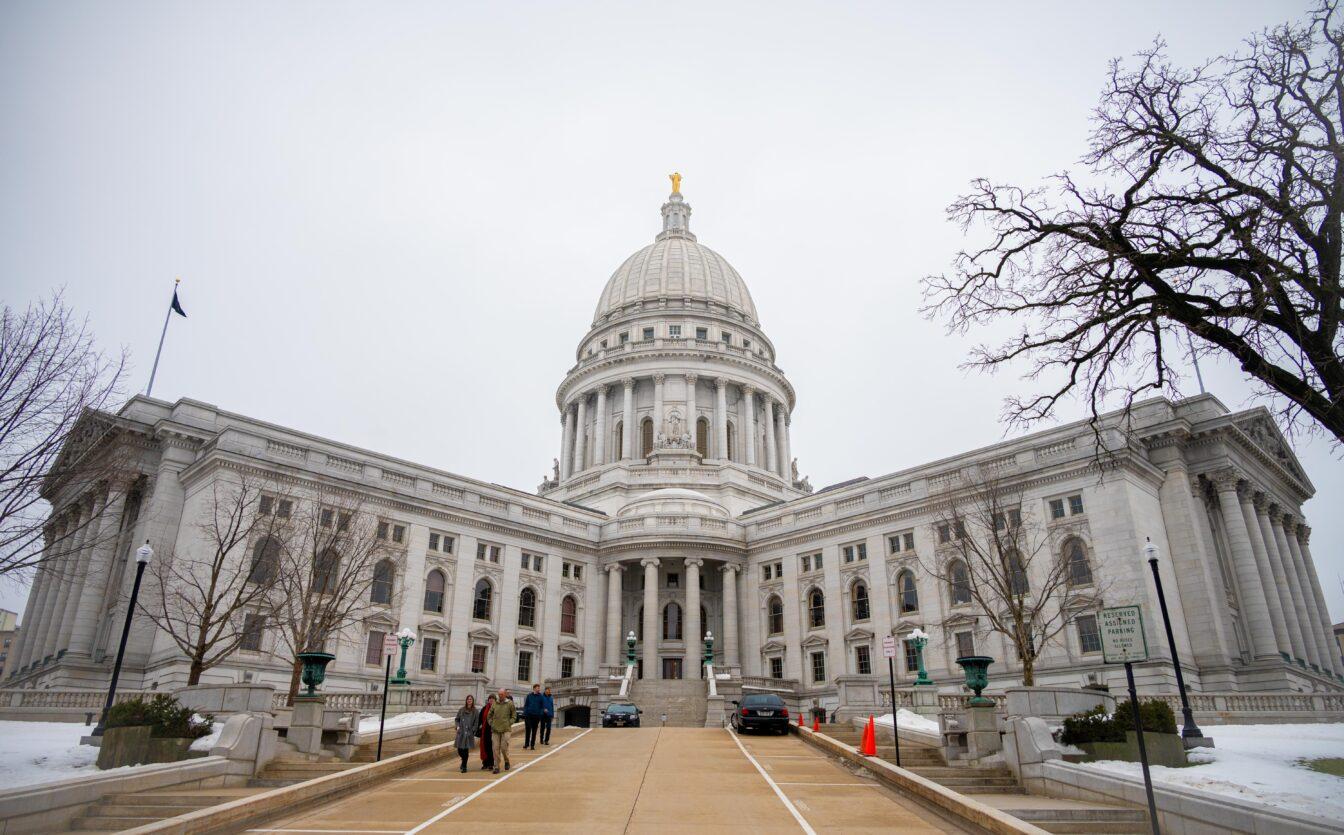With the 2024 presidential election taking place in just a few days, the stressful time period has left many reflecting on their political stances and participation. While many of these stances are dictated by objectivity or personal background, another aspect that can prove influential is entertainment media.
Entertainment media includes film, print, radio and television broadcasts, according to the University of Notre Dame. The Badger Herald spoke to University of Wisconsin professors Allison Prasch and Michael Xenos about the effects entertainment media can have on politics and perhaps the 2024 election.
Xenos, a professor and the director of undergraduate studies of UW’s Life Sciences Department, said common examples of political entertainment media include talk and late-night television programs such as “The Daily Show” and “Last Week Tonight with John Oliver.” But, entertainment media more generally has become increasingly tied to politics in the modern era, according to Xenos.
“There have always been these two worlds of entertainment and politics… [and] the line between them is increasingly harder to draw,” Xenos said.
When considering how entertainment media can influence political knowledge, Xenos said media that is simultaneously informative and engaging can draw apolitical individuals into the political world. According to Xenos, making politics entertaining allows audiences to learn more from their viewing experiences.
Xenos said that he and a student recently conducted a study showing that presenting political topics in a humorous way, rather than a serious one, can prime citizens to consider and better understand current issues. Right-leaning individuals tend to prefer more serious forms of political entertainment media while left-leaning individuals tend to prefer satirical or comedic forms of political entertainment media, Xenos said.
Prasch, a professor of Rhetoric, Politics and Culture in UW’s Communication Arts department, said celebrity endorsements have become increasingly relevant in modern years. In the 20th century, politicians would often appear with cultural icons, though not at the massively circulated level seen today, Prasch said.
According to Prasch, endorsements from celebrities such as Oprah or Taylor Swift can stimulate political participation and turnout, especially within younger generations. Celebrity endorsements can also make candidates appear more authentic and relatable to voters, Prasch said.
“[This influence] tells us something about the linkage between political involvement and celebrity culture right now,” Prasch said.
Prasch said the decisions made by both Democratic candidate Kamala Harris and Republican candidate Donald Trump to speak on podcasts suggests a shift in how politicians attempt to reach voters and influence turnout.
According to Prasch, this shift includes more focused and direct appeals to particular demographics and voters, such as those following the podcasts both candidates have appeared on.
Prash said prominent examples of Trump and Harris’ efforts to reach voters through podcasts have been observed in “The Joe Rogan Show” and “Call Her Daddy,” respectively. Both podcasts rank among the most popular in the United States, and their hosts’ interviews with political candidates could significantly influence the 2024 election, according to Prasch.
“These [hosts] are shifting and shaping how candidates think about reaching their audience,” Prasch said.
Xenos said Trump especially has a strong connection to the entertainment industry, largely through his past television series “The Apprentice.” According to Xenos, a large part of Trump’s identity is tied to his history on television, and his relationship with supporters is partially based on their familiarity with him through “The Apprentice.”
“In many ways, Donald Trump is a really good example of the blurring of the line between entertainment, politics, and the news,” Xenos said.
Politicians have always intended to appear visible to their country and the world through the use of media, according to Prasch.
“Regardless of the media landscape … the president [has desired to be seen] through whatever media channels they had at their disposal,” Prasch said.
Prasch said the widespread nature of digital media has made this aim considerably more feasible.
Xenos said that while digital media can influence political mobilization, it primarily impacts political perspectives and the dynamics within the two-party system.
The extensive reach of digital media has fueled political polarization by making it harder for people to disengage from political content, according to Xenos.
The rise of digital media is and will continue to be incredibly influential in politics and elections, though its exact impact in the 2024 election remains unclear, according to Xenos. A large effect of digital media — short video, social media sites — is its broader distribution of information from multiple perspectives, Xenos said.
According to Xenos, this widespread and diverse climate digital media does not necessarily stimulate one kind of emotion and instead draws multiple emotions to the surface in a more significant way.
“[Digital Media] has largely become the currency of the two factions, often at the expense of the other side,” Xenos said.



